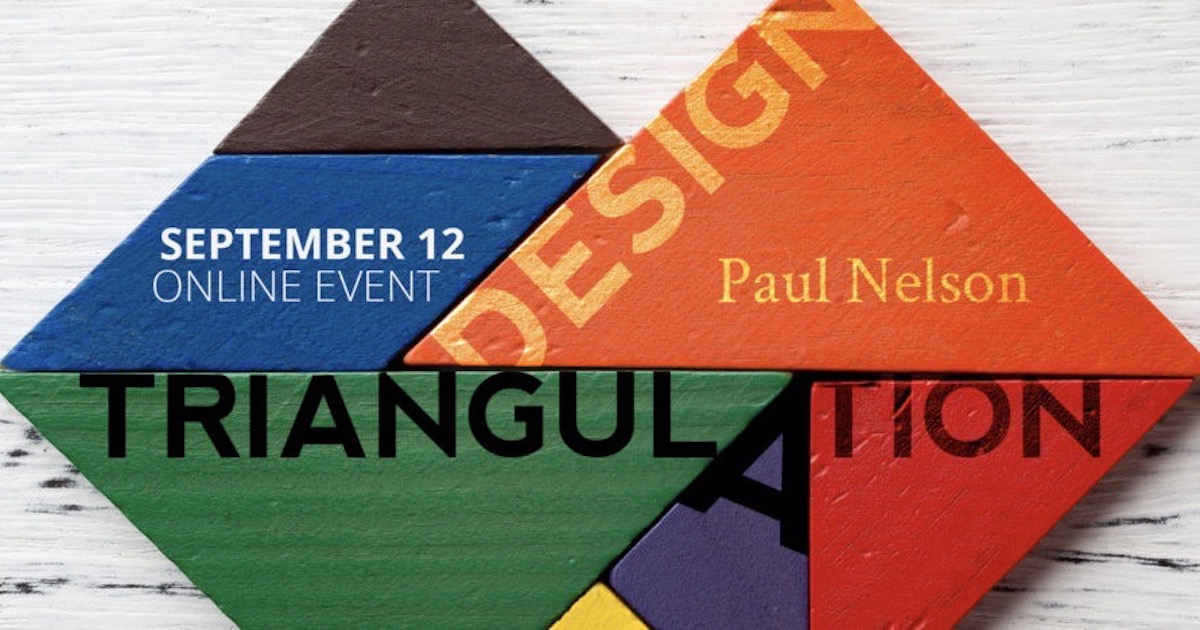 Intelligent Design
Intelligent Design
Webinar: The Promise of Design Triangulation

This Saturday, September 12 at 6 pm Pacific time, Discovery Institute’s Science & Culture Network Chapter in Colorado is sponsoring an online seminar, with me, about an ID proposal, design triangulation. Details are here: “The Promise of Design Triangulation.” Please join me.
For the past few years, I have been telling myself, and students, “Conceive of design as a scientific theory as if Charles Darwin had never lived.” By that, I mean that we must imagine ourselves confronting the task of understanding and explaining the biological world NOT chiefly in a polemical or argumentative context, but simply facing the data with all the causal possibilities on the table.
“Boo Darwin” is relatively easy, and often fun. “Boo Darwin,” however, is not the same enterprise as “Now here is my design theory.” I want to make sure that as intelligent design matures — and, slowly, ID is maturing — that we have empirical content of our own to offer science. That’s all.
A thought on processes. Either a process works, e.g., to construct sequence specificity, or it does not. If it does not, there’s no point in attaching the phrase “intelligent design” to it, as if that will make the process magically sufficient. A defective naturalistic theory is not repaired by positing design as its behind-the-scenes assistant. Scrap the process, and try something else.
